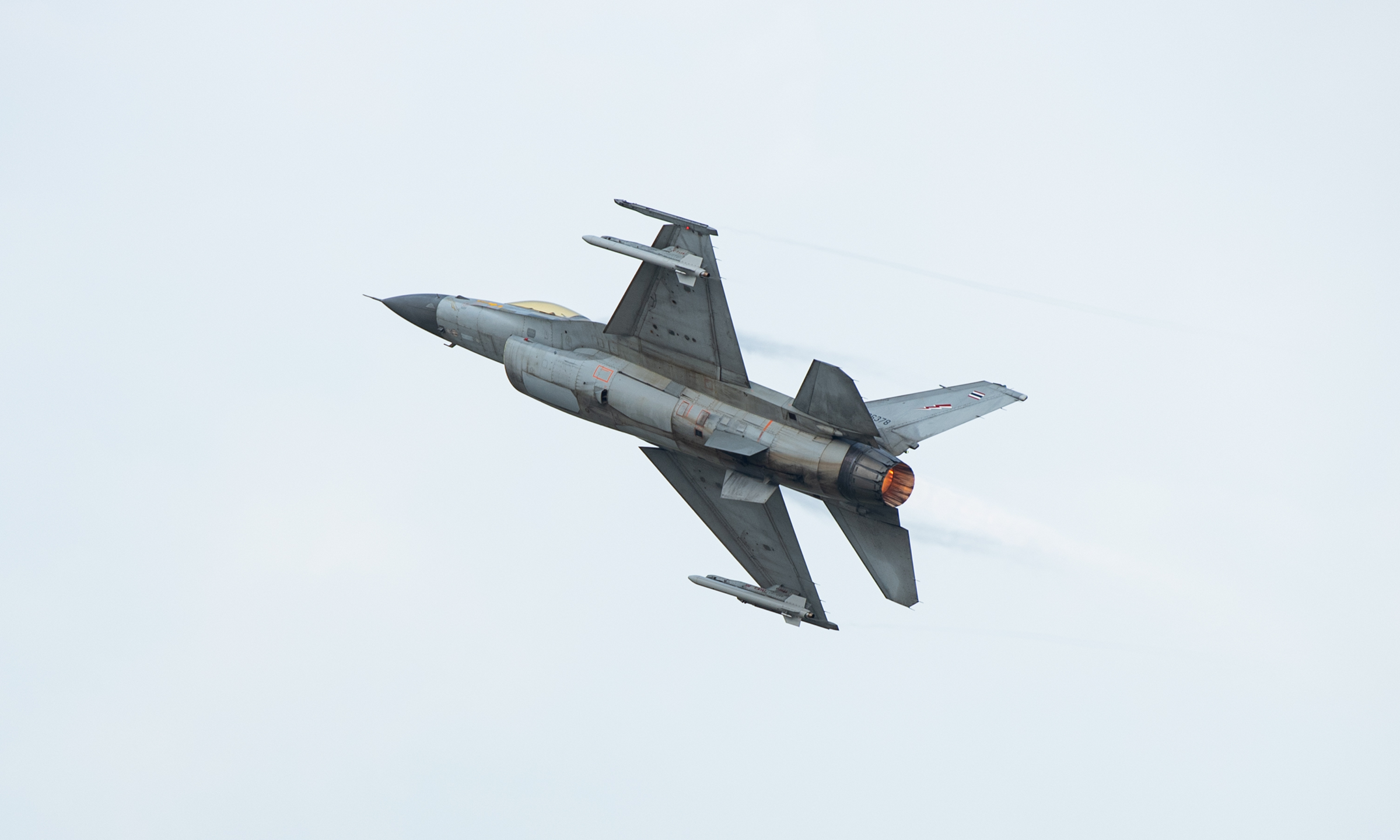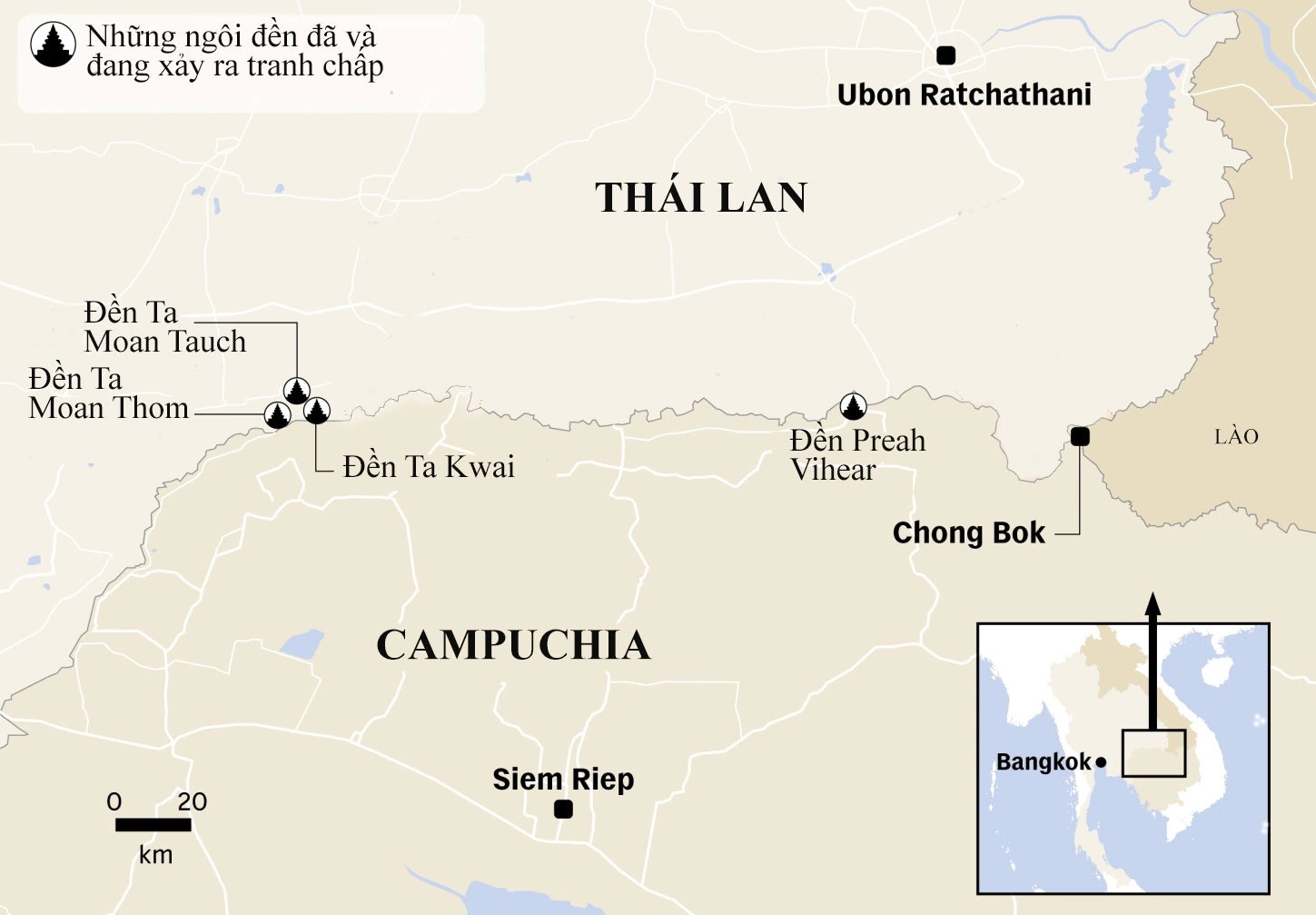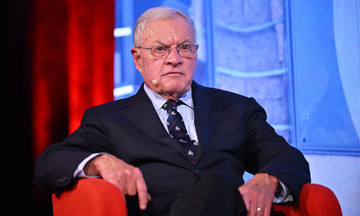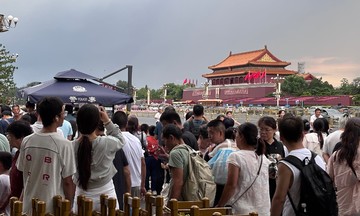Thailand's The Nation reported that four Royal Thai Air Force F-16 fighter jets struck two Cambodian military targets in the early afternoon of 25/7. The mission was reportedly successful, and all aircraft returned safely.
The Royal Thai Air Force then carried out a second strike, dispatching two more F-16s to attack two additional Cambodian military targets. These aircraft also returned to base without incident. The targeted locations were within the Preah Vihear, Ta Muen Thom, and Phu Makua areas.
Maly Socheata, a spokesperson for the Cambodian Ministry of National Defence, stated that Thai F-16s dropped bombs three times around the Preah Vihear temple, Wat Keo Sikha Kiri Swarak, and once near the Ta Krabey temple between 12:30 and 12:40 that day.
According to Socheata, the Thai military also fired four artillery shells at a primary school in Oddar Meanchey province and several villages, resulting in injuries and property damage.
 |
Thai F-16 fighter jets perform a flyover in Bangkok in March. Photo: Reuters |
Thai F-16 fighter jets perform a flyover in Bangkok in March. Photo: Reuters
Socheata also accused Thailand of using cluster munitions, weapons known for their long-term destructive effects, and condemned the action.
Thailand has not responded to the allegations of using cluster munitions or firing on Cambodian schools and villages. Bangkok previously sent a letter to the United Nations accusing Phnom Penh of attacking civilian infrastructure, including hospitals, schools, and public facilities, resulting in Thai casualties.
Acting Prime Minister of Thailand Phumtham Wechayachai stated that he had attempted to negotiate with Cambodia, but has now instructed the military to "take immediate action in case of emergency."
"While the escalating situation could lead to war, it is currently limited to skirmishes," he said.
Thai Ministry of Foreign Affairs spokesperson Nikorndej Balankura said that the US, China, and Malaysia, the current ASEAN chair, offered to mediate. However, Bangkok prefers a bilateral solution to the conflict with Phnom Penh.
"I don't think we need a third country for mediation yet," Balankura said.
Malaysian Prime Minister Anwar Ibrahim earlier said he spoke with the leaders of both Cambodia and Thailand and urged them to seek a peaceful resolution.
 |
The Thai-Cambodia border. Graphic: CNA |
The Thai-Cambodia border. Graphic: CNA
"We appreciate the offer and don't rule out third-party assistance. However, we believe that bilateral mechanisms have not been fully explored," said Thai Deputy Foreign Minister Russ Jalichandra.
Cambodian Prime Minister Hun Manet stated that Cambodia and Thailand initially agreed to the ceasefire proposed by the Malaysian prime minister, but Bangkok later reversed its decision. Thailand has not commented on this information.
Tensions between the two countries escalated on 23/7, when Thai officials accused Cambodia of planting landmines in a disputed border area where a clash occurred in May, injuring a Thai soldier. Fighting between Cambodia and Thailand erupted near the Ta Moan Thom temple on the morning of 24/7 and subsequently spread to other areas along the border.
Pham Giang (After Nation, Khmer Times, Reuters, AFP)












